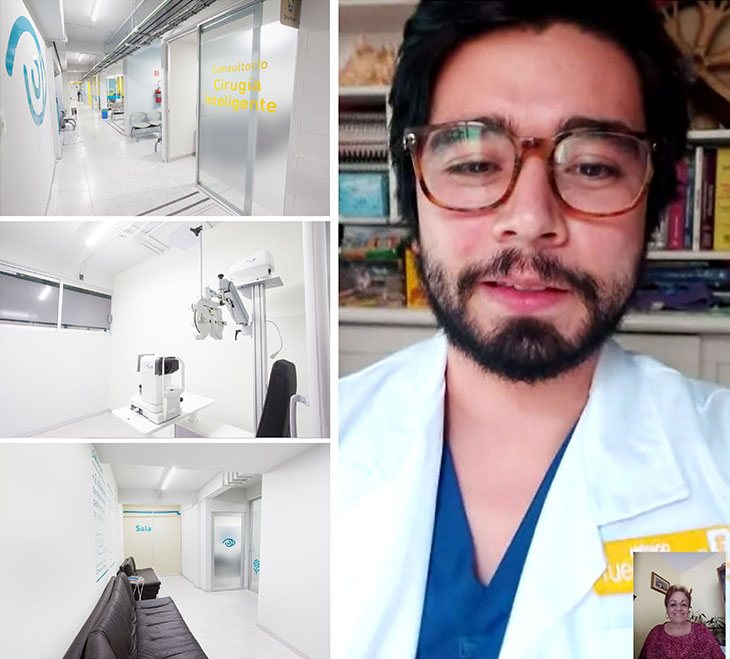On September 19, 2017, a 7.1-magnitude earthquake struck central Mexico, collapsing buildings and killing more than 200 people. It occurred on the anniversary of a 1985 quake that had devastated Mexico's capital.
The earthquake left the city in chaos and damaged several properties, including an area close to salauno, a provider of affordable and accessible eye-care services to low-and middle-income patients that aims to give all Mexicans the possibility to see well and transform their lives. Salauno’s new surgical hub—a 4,000 square meter space that could perform 17,000 surgeries per year—remained in good condition, but because of nearby damage, the surgical hub faced a two-month temporary closure.
That disruption, in retrospect, was “the resilience test that gave us the ability to learn fast and stay focused in any crisis, like the one we’re facing today with COVID-19,” says Carlos Orellana, CEO and cofounder of salauno. Back then, the team sought creative ways to maintain business continuity, like moving surgeries and the corporate team to other locations while adapting the overall model of operations to serve the new circumstances.
Those preparations laid the foundation for salauno to expand its digital offerings to serve patients who are vulnerable to COVID-19. To guarantee their safety, the physical operation of the clinics was suspended in late March, but salauno soon launched a telemedicine service to identify patients who require immediate attention due to emergency or degenerative diseases.

Salanuo’s clinics are empty because of COVID-19, but medical care continues.
Just a few weeks after the digital offerings began, salauno had already conducted around 1,000 teleconsultations—and that number is expected to continue to grow.
Under pressure
Salauno, founded in 2011 by Orellana and Javier Okhuysen, serves a critical need in Mexico, where blindness is the second most common disability. Diabetes affects 16 percent of Mexico’s adult population, and approximately 30 percent of all cases of blindness in the country are due to diabetic retinopathy. Cataracts are another common cause of blindness.
Salauno, which is backed by an equity investment from IFC, has provided eye care to over 400,000 people and grown from one surgical center in Mexico City into a network of 22 diagnostic centers and one surgical hub. It offers a range of services throughout the Valley of Mexico and Metropolitan area.
To better meet the needs of these clients, salauno began a large-scale effort in 2016 to integrate digital and mobile solutions for greater outreach. Now, salauno can communicate with patients and schedule appointments using WhatsApp and an artificial intelligence-powered chatbot on its website and Facebook.
The company’s shift to digital and mobile offerings has accelerated because of the coronavirus outbreak. According to Orellana, the strategy to deal with the pandemic focuses on keeping patients and staff safe and healthy, ensuring corporate financial viability, and "gaining ground" so the company will be in a strong position when the coronavirus threat recedes.
Join the conversation: #IFCimpact
Published in June 2020

